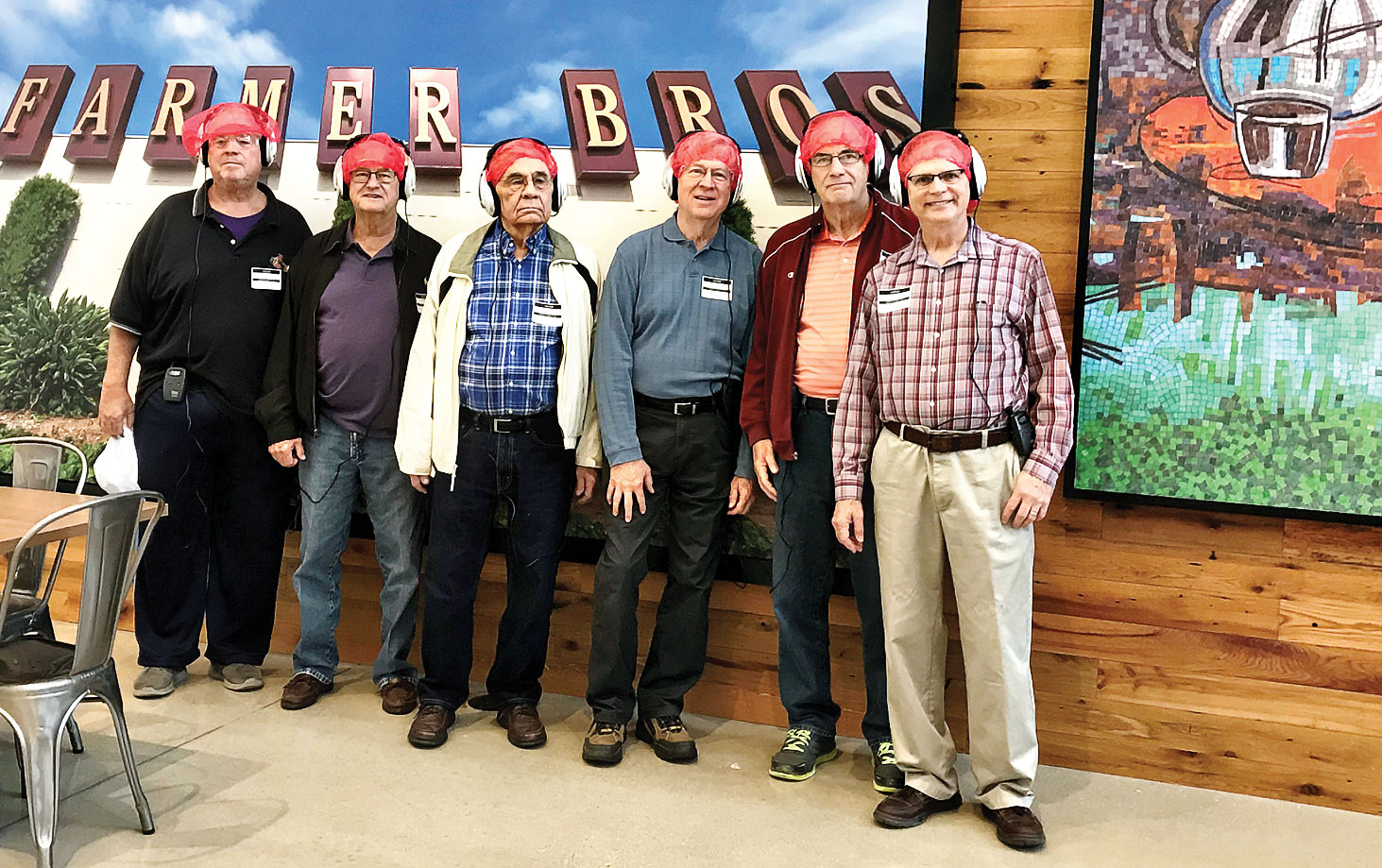
Donning headsets and hairnets are (left to right): Mark Kuxhause, Ron Lehrer, Les Voth, David Laschinger, Steve Williams and Mark Piland, ready to begin the tour of the Farmer Brothers Coffee operation.
David Laschinger
Did you know that when the fruit on one coffee tree is harvested it will only make a single twelve-ounce bag of coffee on the store shelf? The fruit on a coffee tree is much like a cherry or berry with the pit or nut in the middle that becomes the coffee bean, only because it resembles one. Coffee trees grow between the Tropics of Cancer and Capricorn, mainly in countries where labor costs are minimal. Hawaii is the only state in the USA that grows coffee commercially.
In early November, a few men from Robson Ranch, myself included, were given a rare opportunity to tour the Farmer Brothers coffee facility that officially opened in March 2017. Donning hair nets and audio headsets, which also provided hearing protection on the noisy shop floor, we washed our hands in preparation for the tour. Leading us through the Farmer Brothers operation and verbally describing what we were observing, which we heard through the headsets, was Joshua Montoya, an Operations Systems Analyst.
Farmer Brothers was founded by Roy E. Farmer. In 1912, he began roasting coffee in the back of his brother’s bicycle shop near Los Angeles. He improved the roasting process over the years and the company grew through acquisitions and expansion. In 2017, their headquarters was relocated from California to nearby Northlake, Texas. In addition to the corporate offices, the building houses their newest and most automated production facility. Other production operations are in Houston and Oregon and they have over 100 satellite locations to serve customers.
Joshua first took us to the receiving warehouse where beans from about thirty countries had been delivered to their docks by truck. Hundreds of pallets with 150 pounds burlap bags were stacked like sacks of bark mulch at a garden center. When a work-order is ready, the proper bags of beans are run through a cleaning process. Before the beans left their native land, they had been dried in the sun on various surfaces then raked and put in the burlap bags. The bags of beans occasionally contain odd objects like religious ceremonial items and small toys that must be removed.
After the beans are washed, they are transported by conveyors enclosed in stainless steel tubes for the rest of the process, meaning the coffee itself is untouched in their facility thus maintaining the highest sanitary conditions. Next, we entered the highly automated blending and roasting operations, followed by packaging, palletization and warehouse storage. After seeing the production area, we viewed two fully restored antique delivery vehicles then briefly toured the headquarters offices and the common area of the lobby with murals and historic photographs of the company.
Although coffee is their core business, Farmer Brothers previously processed spices and continue to provide select food items, coffee brewers, beverage dispensing equipment and supplies to restaurants, hotels and retailers. A consumer taste testing area in the Northlake facility evaluates products such as tea and pancakes in addition to coffee.
Robson residents who participated in this special tour were Mark Kuxhause, David Laschinger, Steve Williams and Ron Lehrer.
